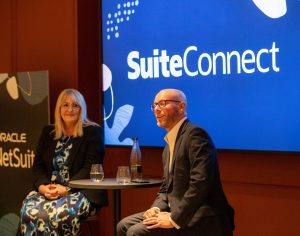Enterprise in the UK has had a real shot in the arm in recent years. And it certainly hasn’t been from the banks. No, it’s been from the surging popularity of entrepreneurship among young people. One look around September’s bustling MADE Festival demonstrated the passion and engagement of a generation inspired to make a difference – a far cry from the lazy troublemakers we often see depicted in the national press.
It’s safe to say that starting a business is seen as a far more credible career option for young people than it ever has been before. “I certainly think that the culture for entrepreneurship has changed,” says Michael Hayman, founder of PR agency Seven Hills and the brains behind MADE.
Hayman says this change is being driven in part by the UK’s dire economic state – and the career challenges that creates. “The fact is for a lot of young people there just aren’t a lot of jobs about. We’ve got the situation where there are just under a million unemployed 18-24 year olds, and many of those people are going to have to realise that as there aren’t jobs they can take, they’re going to have to make them.”
The increasing visibility of entrepreneurs helps too, says Oli Barrett, co-founder of StartUp Britain, creator of Tenner (a competition where school children are loaned £10 and are challenged to make money) and dubbed as the ‘most networked man in Britain’. “Shows such as Dragons’ Den and The Apprentice do make a big difference,” he says. “They get people talking and thinking about business.”
These shows also showcase what it means to be successful – something which, historically, we in the UK have not been very good at, says Charlie Mullins, founder of Pimlico Plumbers, the country’s largest independent plumbing company. Having left school at 15, Mullins started his company in 1970 – it now employs 200 people and turned over £17m last year. “People often say to me that I’m always in the paper, showing off my money and my motor, but if it encourages youngsters to be successful, what’s wrong with that?”
Barrett agrees that there is no shame in being transparent about what motivates us. “If I don’t get out of bed in the morning thinking about how much money I’m going to make that day, I shouldn’t pretend otherwise,” he explains. “Likewise, if buying my third Aston Martin is actually a life-fulfilling experience for me then why not pass that on because it will connect with some people, won’t it?”
Nor should we be despondent about the number of young people who say that they want to be in the public eye, argues Barrett. “I think people are unduly depressed by kids saying they want to be famous. All they’re really saying is ‘I want to be someone, I want to do something with my life. I want to make my mark on the world’.”
One young person determined to make a splash as a teenager was Gary Martin, now 23. Martin started his own business at 13, made his first million at the age of 17 and now runs a number of successful, highly profitable businesses. Martin credits his success to the people who inspired and supported him in his formative years. And, while the list includes the usual suspects such as Richard Branson, one of the most influential people in his life was his father.

“My father was a big teacher for me,” Martin says. “You need someone who can teach you the tricks and show you the path. As great as it is learning about the big guys, you do need someone who can look at you as an individual.”
Even now, Martin counts his advisors and board members of his main business, Martin Construction, as trusted mentors. “I’m smart enough to realise the skills I don’t have and that I haven’t seen everything. So I try to surround myself with people who have lots of expertise and have done this before. I’m always looking for grey hair to bring into the business.”
Martin is an example of an entrepreneur who didn’t feel the need to go to university. His father persuaded him to give it a shot, so he attended Ulster University in Northern Ireland for two weeks before he decided he needed to get back to running his business, which was already thriving.
But higher education and entrepreneurship aren’t necessarily at odds, with plenty of universities running increasingly successful entrepreneurship societies. Indeed, Oxford Entrepreneurs claims to be the University of Oxford’s largest society. And lots of entrepreneurs are forming the ideas for their businesses while at university and putting medal to the metal when they leave (see case study on James Eder). After all, there is arguably no better time to start a business than immediately after a degree finishes – with little likelihood of having amassed many assets, there is minimal risk involved.
Duncan Cheatle, serial entrepreneur and a non-executive director at StartUp Loans, set up to lend more than £81m to entrepreneurs aged 18-24 has just launched the Rise To club. Rise To is about inspiring young people to have the enterprise spirit. “If you get through school and university and you’ve got nothing but average grades to show, you’re not employable,” he explains. “It’s about improving their employability by helping them get off their backsides and do stuff.”
One of the ways Rise To and StarUp Loans plan to help young people is by connecting them with entrepreneurs who have already set up their own businesses. “It’s all very well having Branson doing the inspirational piece, but what we absolutely need is people in their 20s who are doing it, who are sharing their stories,” says Cheatle.
The general consensus is that the future for young entrepreneurs in the UK is bright. Hayman, who is involved with Peter Jones on the Tycoon In Schools scheme, is certainly optimistic for the future of young entrepreneurs in the UK. “The level of enthusiasm and optimism among that group is absolutely unbelievable,” he says. “It stands in stark contrast to the perceived wisdom that what we’ve got is a nation of young people who are about to give up.”
Zoe Jackson, 23
Founder of Living The Dream and StartUp Loans ambassador

I started Living The Dream when I was 16 to raise money for my own performing arts training. I put on annual showcases for young people, providing affordable access to the arts.
I did that throughout my A levels and my degree and then, when I graduated just over two years ago, I decided to set up a school of performing arts, which included things like classes and after-school clubs and shows. Then this year we launched our dance company, which does flashmobs, events and music videos, and our charity.
I do lots of other things too, and got involved with Virgin Media Pioneers about a year ago, which meant various different opportunities to meet Richard Branson. Then I got selected by him to represent his Control Shift campaign and together we launched a dance app on Virgin Media’s TiVo. Through that I got involved with Start-Up Loans, for which I’m now an ambassador.
I think the media, especially since the riots, have tended to show young people in a very negative light. What I hear from our students and other young people is that this perception in the media makes them feel really negative about themselves and stifles their confidence and belief in being able to achieve great things. That’s what Living The Dream is all about: it’s trying to break those stereotypes.
Mentors are important to me. I have a couple to whom I’m really close and speak to regularly and there are others I can go to occasionally to get great advice about strategy and turning Living The Dream into a global brand.
You have to be very forthright about asking for help. When I was at university, I sent out 200 letters to celebrities saying, this is my company, I need some support, advice and money. Actor Alan Rickman wrote back to me and invited me for lunch, which was just amazing. He has stayed in touch and given me ongoing advice since. I think that’s proof that if you put yourself out there, people are generally flattered that you’ve asked for their help and good things can come of it.
In the beginning, as a 16-year-old blonde girl, it was sometimes hard to be taken seriously. But my confidence has grown so much over the last four or five years. I think it’s all down to that. If you’ve got the confidence, you can make people believe in you and your ideas – no matter what age you are.
James Eder, 29
Co-founder of thebeansgroup.com and StartUp Loans ambassador

I started studentbeans.com back in 2005 when I was 22, just a few weeks after graduating from the University of Birmingham. I wrote a business plan as part of my degree where I actually came up with the idea for studentbeans.com and after graduating it made sense to set it up. I co-founded the business alongside my business partner and brother, Michael. He came up with the name of our website; the name studentbeans.com is based on the idea that our website is as essential to student life as a can of baked beans – a staple part of the student diet.
We are now called The Beans Group (www.thebeansgroup.com) and have recently launched a site called morebeans.com, which is focusing on life after university.
Our initial start-up loan request was rejected by the bank and in the end we received a low-interest loan from The Prince’s Trust. We were part of The Prince’s Trust Business Programme, and the advice and support from them in the early days was invaluable. It was not just about the funding, but the additional support structure. At first, we just had a holding webpage saying ‘coming soon’, but the money helped us to print promotional materials and get the website up and running.
I’ve been inspired by lots of different things and different people and I always knew I didn’t want to follow the crowd. From a young age I always got involved in different things, for example Young Enterprise at school. At university while friends were partying and sleeping, I worked as a brand manager for Yellow Pages, did work placements in the Philippines and Colombia and organised events on campus. All these opportunities lay the foundations for my next steps, I knew I wanted to run my own business and do something that really makes a difference.
Peter Jones
Entrepreneur, investor and youth enterprise enthusiast

Serial entrepreneur, millionaire businessman and star of Dragons’ Den, Peter Jones is arguably one of the fiercest proponents of youth enterprise in the UK. He has worked tirelessly with young people, government and businesses to raise the awareness of and viability of entrepreneurship among young people. He has worked with Oli Barrett on the Tenner scheme, and he launched the Peter Jones Enterprise Academy in September 2009.
His latest foray into youth enterprise is Tycoon In Schools, a loan scheme among schoolchildren which launches on November 5, 2012. “I came up with Tycoon In Schools as a result of trying to find a way to really help kids start a real business at school,” says Jones. “There are plenty of initiatives in schools today that relate to starting a business but there hasn’t been one that provides start-up capital to the tune of £1,000,” he explains. “I wanted to raise the bar and introduce a new competition that I could be really involved in and grow over the years to come.”
Jones isn’t alone in his ambition to improve attitudes towards early entrepreneurship: prime minister David Cameron has already pledged to offer support for every school in England to run its own business. But are these just hollow words? Jones says not. “I definitely think the imbalance is being addressed, but until we have entrepreneurship education from five to 18, we are severely limiting the number of young people leaving school and starting businesses.”
Indeed, Jones has been campaigning for years to make enterprise a core component of the British education system with a GCSE in the subject. “I’ve even written Britain’s first ever qualification in enterprise and entrepreneurship in the form of BTEC, levels II and III, but I look forward to the day when David Cameron calls me and asks me to write the GCSE and A-level. I won’t stop pushing for this to happen – it has to.”
Despite the fact there may be much more work to be done, Jones says change is afoot – at least in terms of the prevailing attitude towards entrepreneurs. “That’s down to a combination of factors, especially TV programmes like Dragons’ Den, that have raised the profile of enterprise and made it a very real and credible alternative to becoming an employee of someone else’s company,” Jones posits. “I said back in 2005 that business is becoming the new rock’n’roll, and I do think people’s perceptions of becoming an entrepreneur have changed a lot over the last five years.”
This means that there has never been a better time to start a business, he argues. “I definitely think starting your own business is more viable today than it ever has been before,” Jones says. “There is more help and advice open to young people than there has been in the past and the advent of the internet and social media not only makes it easier to find out how to start up your own business, but also how to gain international profile and market yourself much more quickly, cheaply and effectively than ever before.”
But this doesn’t necessarily mean success and riches will follow, he warns. “There is no single winning formula that can guarantee the success of your business,” Jones says. And a massive cash injection is no silver bullet, either. “Money most definitely isn’t the magic ingredient to setting up a successful business. You need a good idea, a committed team, huge amounts of dedication and passion and a little bit of luck – you have to give it your all and just get on and do it.”
Share via:


















































